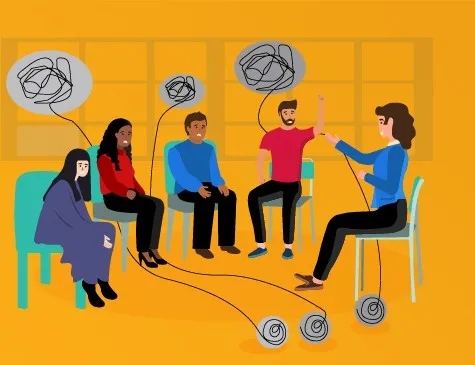American International College FNP
THANK YOU!
Thank you for becoming a preceptor for our online Family Nurse Practitioner programs. Our programs’ success depends on the dedication of healthcare professionals like you who are interested in contributing to our students’ educational process.
This guide provides baseline information about internship and field practicum. There are also frequently asked questions to help answer any questions you may have. However, please feel free to reach out to your student’s faculty advisor or Ellen Furman (ellen.furman@aic.edu) if you have any additional questions.
PRECEPTOR AND STUDENT EXPECTATIONS
Preceptor Role
A preceptor is an experienced healthcare professional who agrees to train students in the field using a variety of skills and education tools. They serve as role models, showing professional behavior, and appropriate actions and behaviors.
They help nurse practitioner students learn by providing feedback, maintaining a safe learning environment, and determining appropriate tasks for the student. Preceptors collaborate with the students and faculty to ensure the internship and field practicum experience is satisfactory for all parties.
As a preceptor, you will engage in multiple roles, such as:
- Teacher
- Coach
- Leader/Influencer
- Facilitator/Socialization agent
- Evaluator
- Protector
- Role Model
- Mentor
Preceptor Responsibilities
As a preceptor, you will also have several responsibilities:
- Provide support and encouragement to the student
- Provide a variety of learning experiences within the nursing practice setting
- Educate/inform the student about policies, procedures, and guidelines
- Expect and communicate with the student to work on days/times according to your schedule throughout the rotation together
- Notify the student of any changes in the schedule
- Support the student in their learning of skills and professional behaviors
- Maintain or co-sign the time log to document the student’s precepted hours
- Report any issues, concerns, adverse events or unfavorable outcomes to the appropriate contact at Walsh in a timely manner
- Notify the faculty if the student is not meeting objectives
- Complete evaluations as requested
Student Responsibilities
Students also have responsibilities to ensure a successful internship and field practicum experience:
- Arrive on time and take breaks at an appropriate time.
- Review personal goals for the precepted experience with the preceptor and revise if needed
- Determine an appropriate work schedule and complete dates as scheduled (dates and hours selected must not conflict with classes)
- Demonstrate an attitude of cooperation and willingness to learn
- Establish rapport with patients and families when appropriate
- Work as a team member
- Demonstrate effective communication with patients, staff members, and the preceptor
- Follow all site regulations and guidelines for practice
- Immediately report any adverse events or outcomes to the preceptor
- Seek new learning experiences and request help when needed
- Accept guidance and suggestions with a positive attitude
- Improve skills, knowledge, and understanding of the nurse practitioner role.
- Notify the instructor, faculty, and preceptor of emergency changes in schedule.
Important Information Before The First Day
It is important to cover the following items with the student prior to the start of his/her rotation or during your first meeting:
- Shift schedule
- Required dress code based on student handbook and site policy
- Parking policy
- ID badge
- Computer access/training
- Expectations regarding timeliness, professionalism, preparedness, etc.
- Absence policy and expectations
- Current skill level and position in course progression
- Objectives and goals (provided by the faculty to guide the student’s experience)
Faculty Rotation Preparation
Orientation Process
- Each organization may differ regarding the orientation process for students. Please coordinate with the faculty and agency to ensure proper student orientation. On the first day of the rotation, students need to be oriented by the preceptor to the important site areas.
Necessary Documentation
- All documentation needed for preceptors will be handled by either the site or administration office at AIC. We recommend preceptors check their email frequently to ensure further documentation or information is not needed.
Setting Expectations, Goals, and Objectives
- Course and rotation objectives will be provided by faculty and should guide the student’s experience.
- At the beginning of the rotation, the student and preceptor should sit down and discuss the objectives. The preceptor should also inquire about other goals or objectives the student has for their rotations. This information helps the preceptor plan and provides learning opportunities and student-specific instruction.
- Preceptors should also be aware of students’ current skills and knowledge base as it pertains to the healthcare setting. Using the program plan of study and previous objectives, preceptors can understand the skills and experiences the students are already equipped with.
Formative Evaluation Process
A crucial role of the preceptor is being an evaluator. On the first day of the rotation, explain to the students that feedback will be provided often throughout. Providing feedback to students is necessary for their learning and growth.
Nursing knowledge development, worldview and competencies of the advanced practice nurse are examined. The focus of this course is professional practice development, communication, leadership, team building and interdisciplinary collaboration. PREREQUISITE: None
Pharmacological management of adult/child onset acute and chronic illness is the focus of this course. Principles of pharmacokinetics, pharmacodynamics and pharmacogenomics will be examined. Cultural beliefs and practices for adult-onset illnesses related to medication management are analyzed. PREREQUISITE: NUR6040
Health assessment of individuals and families are explored from the perspective of client-centered care, safety, cultural diversity, genomics and biopsychosocial principles. Laboratory practice is required. PREREQUISITES: NUR6040, NUR6041
This course focuses on health assessment knowledge and skills needed by advanced practice nurses. The diagnostic reasoning skills needed for clinical reasoning in the advanced practice role are emphasized. Includes a clinical component to continue to develop and refine comprehensive health assessment skills. PREREQUISITE: NUR6042
First in a series of six clinical management courses for nurse practitioners. The focus of the course is on the application of advanced pathophysiology concepts and clinical decision-making skills to interpret assessment data and develop diagnoses and treatment plans in primary care of adults. The integration of research and evidence-based practice, teaching/health promotion and consultation skills within the context of collaborative practice are emphasized. PREREQUISITES: NUR6510, NUR6510
The focus is on the delivery of care to children and their families experiencing acute and chronic health problems. Continued emphasis on collaboration with the health care team in the implementation and the evaluation of accepted medical and nursing interventions used in the care of children. Effective use of skills required for clinical management, education, consultation, referral and follow-up are emphasized. Therapeutic interventions based upon evidenced-based research are integrated along with complementary and alternative healing approaches appropriate for children and their families with health care problems. PREREQUISITE: NUR6541
Focus is on the delivery of care to women and their families experiencing acute and chronic health problems. Continued emphasis on collaboration with the health care team in the implementation and the evaluation of accepted medical and nursing interventions used in the care of women. Effective use of skills required for clinical management, education, consultation, referral and follow-up are emphasized. Therapeutic interventions based upon evidenced-based research are integrated along with complementary and alternative healing approaches appropriate for women and their families with health care problems. PREREQUISITE: NUR6550
Opportunity to further develop leadership, research, teaching and consultation skills as a basis for advanced clinical practice. Practice issues are explored within the context of ethical and effective use of resources for beginning autonomous practice. The course focuses on the management of complex health issues experienced by older adults. PREREQUISITE: NUR6551
Opportunity to further develop leadership, research, teaching and consultation skills as a basis for advanced clinical practice. Practice issues are explored within the context of ethical and effective use of resources for beginning autonomous practice. The course focuses on the management of complex health issues experienced by clients across the lifespan. Theoretical concepts of organizational systems and health care politics and policy are applied to the advanced practice setting to identify and solve complex health and systems problems. PREREQUISITE: NUR6560
This course is a capstone experience in which the family nurse practitioner students continue to develop knowledge and expertise in the role as a primary care provider. Autonomy in clinical decision-making is emphasized. Family nurse practitioner students increase their levels of responsibility for independent client and family management in health promotion and disease prevention. PREREQUISITE: NUR6561
The role of the advanced practice registered nurse (APRN) and the concepts of primary care within a contemporary health care system will be explored. Issues related to the role of the APRN, regulation affecting practice, inter-professional collaboration, accountability and outcomes relevant to the APRN practice will be examined. PREREQUISITE: NUR6561





